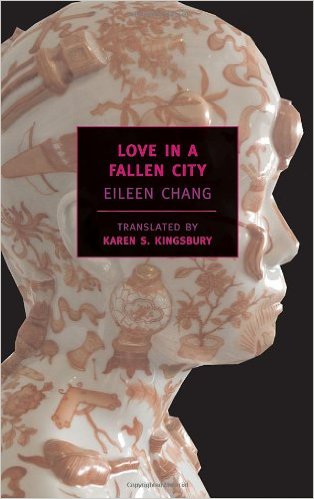On a bitter cold day, a person can be frozen numb and it won’t bother him, but a little warmth will make him so cold that his heart hurts and his bones ache.
– ‘Jasmine Tea’, the second story of Love in A Fallen City by Eileen Chang

Not only does Eileen Chang deny her protagonists a peaceful happily-ever-after, she refuses them the luxury of despair. The divorcée spurned by her family says that her life is over. The astringent response is this: ‘People who don’t have money can’t just give up, even if they want to. Shave your head, become a nun, and when you beg for alms, you’ll still have to deal with people.’
Chang’s own experiences had taught her that giving up is an extravagance. Her life’s story is one of survival. She was the daughter of an opium-addled father and an often-absent mother. They divorced when Chang was a teenager. Her father beat her, imprisoned her, and denied her medical care. She only escaped his house with the aid of her nurse. Refusing to give into self-pity, she wrote through the Japanese occupation of Shanghai. She wrote through her husband’s infidelities. She wrote past her divorce. Forced to leave Shanghai in the wake of the Communist revolution, she moved to Hong Kong and then to America and kept on writing.
When Granta asked me to pick the best book of any year, I quickly thought of Love in a Fallen City. The question was, of which year was it the best book? Chang wrote these stories in the 1940s, in the grey aftermath of World War II. But the collection was compiled in 2007, when Karen S. Kingsbury translated Chang’s stories for the New York Review of Books. It is simplest to say that Love in the Fallen City was the best book of the twentieth year of my life. I was living part-time with my grandmother. She’s only a few years younger than Eileen Chang, and like her, came to America from Shanghai after the war. She’d read Chang in Chinese and praised the satire and sharp descriptions. So, I picked up a copy of Love in a Fallen City.
As I read, every vicious reversal stung, but my inner-cynic recognized their logic. Rereading the book almost a decade later, it is the sweet moments that catch me up. In a city on the verge of war, our protagonist is alone in her new house. ‘The green paint on the sitting room door and window was still wet. She touched it with her index finger, then pressed her sticky finger against the wall, leaving a green mark each time. Why not? Was it against the law? This was her house! Laughing, she put a fresh green handprint on the dandelion white of the plaster wall.’
Eileen Chang writes perfectly for the romantic in an unromantic and unrelenting world.







